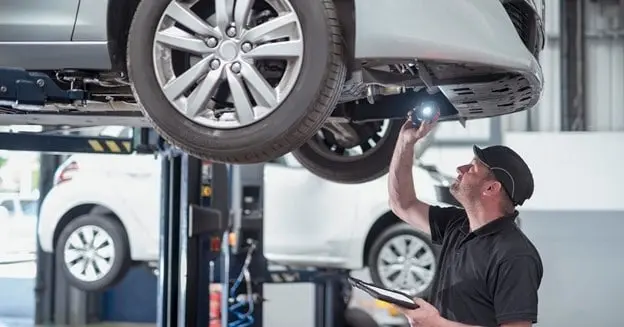
Yes, electric vehicles (EVs) do require regular maintenance and service, but the types of service needed are different from those for traditional gasoline-powered cars. EVs generally have fewer moving parts and simpler powertrains, which means they require less frequent or extensive maintenance. However, there are still essential maintenance tasks that need to be performed to keep the vehicle in good condition.
⚙️ Maintenance and Service Needs for EVs
1. Battery Maintenance
The battery is the most critical component in an electric vehicle, and its health significantly impacts the car’s performance and range.
- Battery Health Checks: EV manufacturers recommend periodic checks of the battery’s condition to ensure it’s holding a charge properly. Battery health degrades over time, and it’s essential to monitor how it’s performing.
- Charging System Checks: The charging port and system should be inspected periodically to ensure they are functioning correctly and charging the battery efficiently.
2. Tire Maintenance
Like all vehicles, EVs require tire maintenance. Since EVs are typically heavier due to the battery, tire wear can be slightly more pronounced.
- Tire Rotation: Regular tire rotations, typically every 6,000 to 8,000 miles, are recommended to ensure even tire wear.
- Tire Pressure: Proper tire pressure is crucial for maintaining efficiency and tire longevity, and it should be checked frequently.
3. Brake System Checks
EVs use regenerative braking that recovers energy during braking and puts it back into the battery. This system reduces the wear on the brake pads compared to traditional braking systems.
- Brake Fluid: Despite the reduced wear on the brake pads, the brake fluid still needs to be checked and replaced according to the manufacturer’s recommendations.
- Brake Pads: The brake pads may last much longer than those on gasoline vehicles due to regenerative braking, but they still need to be inspected regularly for wear.
4. Cooling System
The battery, motor, and other components of an EV may have cooling systems to regulate temperature.
- Coolant: The cooling fluid should be checked and replaced at intervals specified by the manufacturer to ensure that the temperature is maintained correctly for optimal performance and battery life.
5. Software Updates
EVs often rely on software to control various functions, including battery management, regenerative braking, and overall vehicle performance.
- Over-the-Air Updates: Many EVs, especially those from brands like Tesla, can receive software updates remotely, which can improve vehicle performance, add new features, or fix bugs.
- Service Visits for Updates: For models that don’t support over-the-air updates, periodic visits to the service center may be needed to ensure that the software is up to date.
6. Alignment and Suspension
Although EVs have fewer moving parts in their drivetrain, the suspension and alignment still need to be checked and serviced periodically to ensure smooth driving, especially if there are signs of uneven tire wear or handling issues.
7. Air Conditioning and Cabin Filters
EVs use electric air conditioning systems, and they still require maintenance to ensure optimal performance.
- Cabin Air Filter: Just like any vehicle, EVs have cabin air filters that need to be replaced periodically.
- A/C System: The air conditioning system should be checked periodically for leaks or other issues, especially if the vehicle is used in extreme temperatures.
🚗 Service Intervals for EVs
- Routine Service: Generally, EVs need less frequent routine service than gasoline vehicles. Tire rotations, brake inspections, and battery health checks should be done every 6,000 to 12,000 miles.
- Battery Inspection: Battery maintenance, including checking for damage or degradation, is usually done annually or at a specific mileage interval, depending on the manufacturer’s recommendations.
- Brake Fluid and Coolant: These fluids should be changed at the intervals recommended by the manufacturer, typically every 2 to 3 years.
✅ Final Answer
While electric vehicles (EVs) have fewer maintenance needs compared to traditional gasoline cars, they still require regular service and maintenance. This includes checking and maintaining the battery, tires, brake system, cooling system, software, and cabin filters. EVs are generally low-maintenance, but periodic checks are essential for ensuring the vehicle remains in good condition and performs optimally. Regular service is also important for prolonging the life of key components like the battery.





